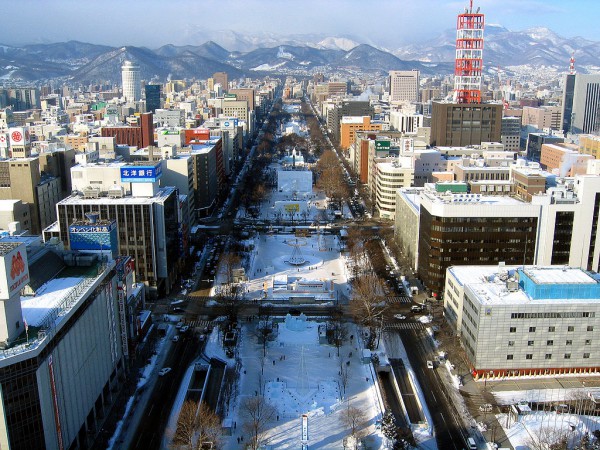Five countries have officially declared interest in hosting a future edition of the Olympic and Paralympic Winter Games, the International Olympic Committee (IOC) confirmed Tuesday, adding that a sixth has expressed interest but has yet to enter into ‘continuous dialogue’ – a phase of the bid process that allows National Olympic Committees (NOC) to discuss potential projects without any commitment.

IOC Executive Director Christophe Dubi also confirmed, following day one of the IOC’s quarterly Executive Board meeting, that Sweden and Switzerland are the latest nations to enter the bid process – joining the United States’ Salt Lake City that has already been in talks for several months, and bids from Canada and Japan that have both since stepped back. But Dubi would not say how many of those parties are seeking to host the earliest 2030 edition – the Games that the IOC hopes to award next year at a meeting ahead of the Paris 2024 Summer Games. He also would not name the sixth prospect yet to enter the race.
“I cannot narrow down for 2030, reason being that we need to respect the confidentiality of those interested parties,” Dubi explained when asked by GamesBids.com.
“They are very clear that they are interested in a future Games edition but they are also in continuous dialogue because we are discussing about those strategic elements…” Dubi added, referring to the possibility that the IOC could award both the 2030 and 2034 editions at the same time, or elect regions to a permanent Winter Games rotation for the foreseeable future in order to address climate concerns.
“And you know all of them except a sixth country which has not yet declared but is talking to us and they are not in continuous dialogue so… the number is really six.”
The IOC Executive Board will hear an update Wednesday from Winter Games Future Host Commission Chair Octavian Morariu on the status of that work.
Dubi said “we’ve been tasked to look into the future and the impact of climate, and study whether a concept of rotation would be favourable especially for the Winter Games in the future and also study the possibility of a double allocation.”
Swedish officials last week released a feasibility study that clearly targets a Games as early as 2030 while Switzerland has not identified a preferred edition to the IOC according to Dubi. Salt Lake City wants to stage the Games in 2034 in order to build a gap following the Los Angeles 2028 Summer Games to maximize revenue opportunities, but the bid committee has said it would step in for 2030 if required to serve the Olympic Movement – that is, if no other suitable host is found.
Last week the Chair of Salt Lake City’s bid, Fraser Bullock, said the progress of Sweden’s bid was good news for Utah because it can increase the chances that the Games will come back to the United States in 2034 – and not 2030.
Sapporo had been aiming to host in 2030 but Japanese officials stepped back in December while dealing with the Tokyo 2020 bid rigging scandal. Last week the Japanese Olympic Committee said they would support a bid from Sapporo or another suitable city if it were for 2034 or later. It is unclear whether this project will remain in continuous dialogue.
A Canadian Olympic Committee (COC) spokesperson told GamesBids.com Tuesday that a bid in the Province of British Columbia is technically still engaged with the IOC, even after the provincial government denied essential funding for the project last year.
“To date, we remain in continuous dialogue with the IOC,” a statement read.
But it further clarified “while no meeting involving the Host First Nations, government partners, the COC and the [Canadian Paralympic Committee] has occurred or been scheduled, we remain open to the opportunity for all partners to come together to talk about the vision for the Games, and the lasting impact hosting a Games could have on the Host Nations, the province and the rest of Canada.”
“Without the engagement and support of the Province of British Columbia, the project will not progress.”
A joint Spanish bid from Barcelona and the Pyrenees dropped out of the race last year due to an internal conflict between partner regions, but the Spanish Olympic Committee signaled that it could still plan to host in the future. Opposition parties to that project expressed to fears that the region may not be climate capable at Games time.
Another country could be involved in secret discussions that have not been made public, a possibility in the IOC’s new confidential bid process that was launched in 2019. There have been reports that France might consider bidding – and there is the possibility that Beijing will want to use venues prepared for the 2022 Winter Games to host once again. South Korea, now organizing the Gangwon 2024 Winter Youth Games, might want to reprise PyeongChang 2018.
Other regions could still come to the table for fear of missing out on hosting any time in the forseeable future if the IOC chooses a permanent rotation as early as next year.
Dubi said these technical decisions could be made at the IOC Executive Board meeting and IOC Session scheduled for October 15-17 in Mumbai, India.


